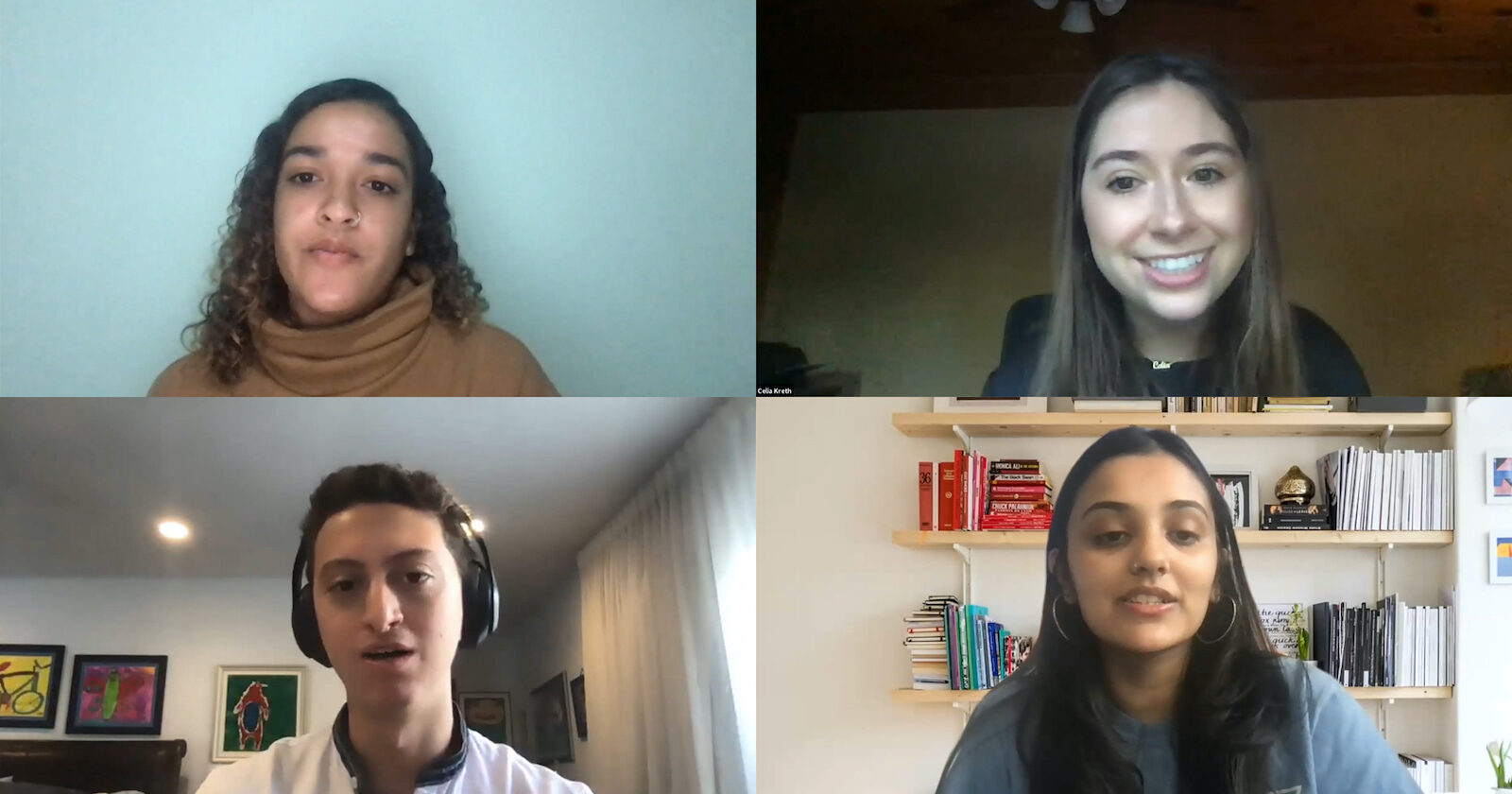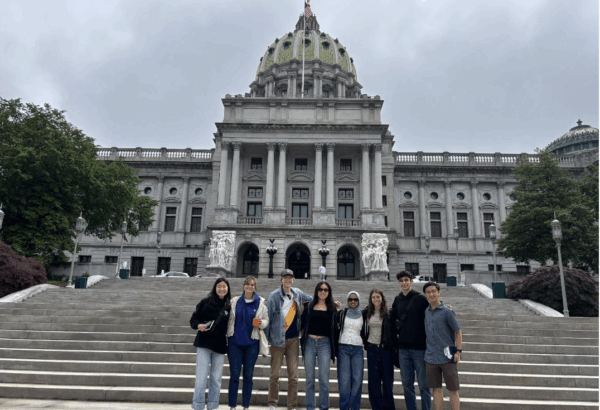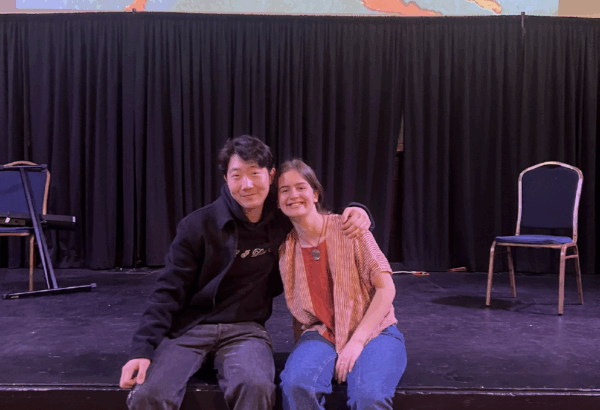Dr. Leah Anderson started the session with a brief welcome to the audience and introductory remarks about the SNF Paideia Program. “We are a program that focuses on cultivating opportunities for students to gain the knowledge, skills, experiences and ethical frameworks to engage in dialogue across difference and through that dialogue to be better equipped and more effective at service, citizenship, and promoting individual and community wellness.”
She went on to introduce the four student representatives on the panel, Dr. Lia Howard, the Wellness and Student Advising Director with the Paideia Program, and then turned the screen over to Kira Lucas to talk about her experience in the program.
Kira Lucas, an English and Cinema Studies major from Buford, Georgia, shared her motivation for joining the Fellows program. She originally decided to apply for the fellowship because she had been involved in civic service organizations in high school but felt challenged when needing to speak in front of others to articulate her ideas. She was intrigued that one of the pillars of the Paideia Program is civic dialogue and she wanted to gain new skills to talk about topics that can be seen as polarizing.
I have definitely found that being part of this program has helped me to gain the confidence in speaking in front of others. It allowed me to have the confidence to engage in discussions that I probably wouldn’t have before.
Celia Kreth, a Communications and Public Service major with a minor in legal studies, is a native of Little Rock, Arkansas. She has had a keen interest in government since high school and comes from a family of journalists, sparking an interest in the media. She was drawn to the SNF Paideia program integration of ancient philosophies of wellness, dialogue, and leadership with contemporary issues. Taking a deep dive into these topics with a cohort of peers who are just as passionate and deeply committed to exploring these ideas through readings, videos, and discussion helped her to think about implementing her ideas in a more strategic way. “I was surprised and kind of curious to hear how varied everyone’s interests were. Hearing about what other people are passionate about was a great opportunity because I’m not so sure that I would have heard that if I hadn’t been in this program.”
Oliver Stern, a Political Science and History major from Miami Beach, Florida, spoke about his interest in free speech and the First Amendment which manifested soon after arriving at Penn. He noted the stark difference between his experience of debate in high school, where he was trained to argue multiple sides of a topic, and debate amongst his friends at Penn, where a skew towards one side of the political spectrum seems to limit how open people feel they can be with one another. He initially applied to the Paideia program because of its mission to foster dialogue across difference. One of the main benefits of the Paideia program for Oliver is honing his own interest in free speech, including why it’s important to college campuses and society at large, as well as understanding the ancient roots of free speech and civil dialogue. Oliver also noted how the diverse community of peers, the faculty mentors, and the opportunity to enroll in SNF Paideia designated courses enhanced his experience at Penn. “For instance, last semester I took a course called Peace Communication, which essentially explored how individuals and groups at large use communication to settle their differences and how communication can actually expand differences at large. We studied different conflicts around the world, such as the Israeli-Palestinian conflict. And it helps you to understand that these topics, while they might seem theoretical, have a very practical approach.”
Shirali Shah, a Business Economics and Public Policy major with a minor in Sociology, is from Fort Worth, Texas. One of the reasons she applied to be a fellow was her varied interests including policy, social systems, wellness, and journalism. She felt the pillars of the SNF Paideia Program aligned well with her personal commitments and she view the program as a good opportunity to integrate her pursuits. “I’ve been able to see how my various interests interact with each other. One of the key elements of the seminar your sophomore fall will be the civic project pitch and mine was about addressing the trauma that students in primary school feel due to the race experiences they have. It was an intersection between wellness, psychology and trauma healing, with education policy. It’s a very interdisciplinary topic that I thought was very niche but as I started to work on my project I realized there’s a lot of literature surrounding the topic.” The feedback from Dr. Anderson and Dr. Howard helped Shirali focus in on a topic that integrated her interests in policy, health, and societal systems in a unique and meaningful way.
All four noted their appreciation of the small group for mentorship from faculty and peers in their cohort. Although there are others in the inaugural cohort from other undergraduate schools and majors with additional stories to tell, Kira, Oliver, Celia, and Shirali offered important insights and a window into the experience of being SNF Paideia Fellows.
Dr. Lia Howard contributed a few additional benefits to being a SNF Paideia Fellow, namely the opportunity to better connect to Penn in a deep way by being part of a small scholarly community but also in a wide way by engaging as an active citizen. Additionally, Dr. Howard discussed the opportunities for funding for students to conduct original research as well as experiential opportunities to develop their unique voice and application of the material to their interests.
Dr. Anderson gave an overview of what the three years would look like as an SNF Paideia Fellow and then Dr. Howard wrapped up the session by providing additional details about the scholarship the Fellows engage in as well as tips for how to approach the 2021 application.




